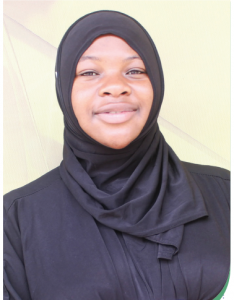
WHY STUDY ISLAMIC ECONOMICS

Islamic finance is a way of doing financial transactions and banking while respecting Islamic law or sharia. Islamic finance hardly existed 30 years ago yet today is a $2.5 trillion industry with hundreds of specialized institutions located in more than 80 countries. Islamic banks are by far the biggest players in the Islamic finance industry and account for $1.75 trillion or 70% of total assets. According to a 2019 State of Global Islamic Economy report, total sharia-compliant assets are expected to grow to $3.5 trillion by 2024.
Islamic finance only represents about 1% of global financial assets but with a 11,4 % growth in 2019, it was expanding
quicker than conventional finance. With COVID 19 that growth is expected to slow down but remain positive. In some geographies like the Gulf Cooperation Council (GCC) or Sub-Saharan Africa, Islamic banks now compete directly with Western banks to attract more clients not only Muslims.
Interest-Free Lending
The most famous rule in Islamic finance is the ban on usury. In economic terms, this means lender and borrowers are forbidden from charging or paying interest or riba. Sharia-compliant banks don’t issue interest-based loans.
The obvious question then becomes: how do Islamic banks make money? Instead of lending money to their clients at a profit, they buy the underlying product the house, the car, the refrigerator and then lease it or re-sell it on installment to the client for a fixed price typically higher than the initial market value. The key notion here is risk sharing the banks make a profit on the transaction as a reward for the risk they took with the customer. Instead of thriving off of interest rates, Islamic banks use their customers’ money to acquire assets such as property or businesses and profit when the loan is successfully repaid.
All Islamic finance investments, acquisitions, and transactions must reflect Islamic values. Dealing with anything illicit (haram) like alcohol production, pork breeding, arms manufacturing, or gambling is strictly forbidden.
Avoiding Interest Pays Off
This ethically-driven approach to business partly explains the success of Islamic banks at a time when many
customers lack trust in the financial system. Moreover, sharia-compliant entities have proven themselves in
times of crisis.
Because Islamic law holds that making money from money is wrong, sharia-compliant institutions tend to
refrain from engaging in speculation. They traditionally avoid derivative instruments such as futures or options
and prefer to have assets grounded in the real economy.
This substantially protected Islamic banks from the 2008 financial crisis. Unlike their conventional counterparts,
sharia-compliant banks were not involved with toxic assets and resistedthe shock better.
“Adherence to Shariah principles which precluded Islamic banks from financing or investing in the kind of instruments that have adversely affected their conventional competitors helped contain the impact of the crisis
on Islamic banks” concluded a 2010 IMF report.
This is a major reason why Islamic finance now has a serious, stable and trustworthy image around the world.




























